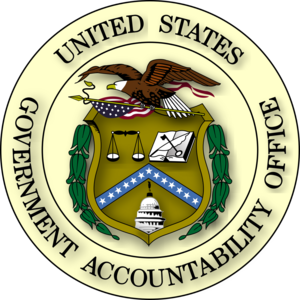GAO: Federal agencies should track progress toward SAF goals

March 28, 2023
BY Erin Krueger
The U.S. Government Accountability Office on March 27 issued a report that includes recommendations on how three federal agencies can track progress related to the Biden administration’s Sustainable Aviation Fuel Grand Challenge.
The Biden administration in September 2021 launched an ambitious initiative that aims to increase the production of sustainable aviation fuel (SAF) to at least 3 billion gallons per year by 2030. This SAF Grand Challenge also set a goal to produce enough SAF to meet 100 percent of aviation demand by 2050.
As part of the SAF Grand Challenge, the GAO was asked to review the federal role related SAF. The agency released its resulting report on March 27. The report discusses the state of SAF production and use for the U.S. commercial aviation industry and factors shaping the SAF market. It also identifies how federal agencies can support SAF and assesses how they will monitor process toward reaching the Grand Challenge goals.
Advertisement
Advertisement
Th complete its report, the GAO reviewed data on SAF production and conventional fuel use from 2016 to 2022. The agency also reviewed Grand Challenge documents and interviewed officials from four agencies selected based on their roles in SAF and interagency efforts. The GAO also said it interviewed 43 stakeholders on a range of SAF issues. Selected stakeholders included airlines, SAF producers, airlines, industry associations, environmental organizations and other groups.
According to the report, approximately 1.9 million gallons of SAF was produced in 2016, with total jet fuel consumed by major U.S. airlines reaching 17.138 billion gallons that year. By 2022, SAF production had increased to 15.8 million gallons, with total jet fuel consumption by major U.S. airlines estimated at 17.51 billion gallons.
Advertisement
Advertisement
In the report, the GAO recommends that the U.S. Department of Transportation, the U.S. Department of Energy and the USDA develop and incorporate performance measures into the Grand Challenge roadmap. Specifically, the GAO recommends that each agency coordinate with the other two agencies to develop and incorporate into the Grand Challenge Roadmap performance measures that enable the agencies to evaluate their actions and the effect of policy of SAF production and communicate the extent to which SAF is poised to contribute to larger aviation greenhouse gas (GHG) emission reduction goals.
A full copy of the report is available on the GAO website.
Related Stories
The USDA has announced it will delay opening the first quarterly grant application window for FY 2026 REAP funding. The agency cited both an application backlog and the need to disincentivize solar projects as reasons for the delay.
Neste and DHL Express have strengthened their collaboration with the supply of 7,400 tons (9.5 million liters) of neat, i.e. unblended, Neste MY Sustainable Aviation Fuel to DHL Express at Singapore Changi Airport starting July 2025.
CoBank’s latest quarterly research report, released July 10, highlights current uncertainty around the implementation of three biofuel policies, RFS RVOs, small refinery exemptions (SREs) and the 45Z clean fuels production tax credit.
The U.S. Energy Information Administration maintained its forecast for 2025 and 2026 biodiesel, renewable diesel and sustainable aviation fuel (SAF) production in its latest Short-Term Energy Outlook, released July 8.
XCF Global Inc. on July 10 shared its strategic plan to invest close to $1 billion in developing a network of SAF production facilities, expanding its U.S. footprint, and advancing its international growth strategy.
Upcoming Events










